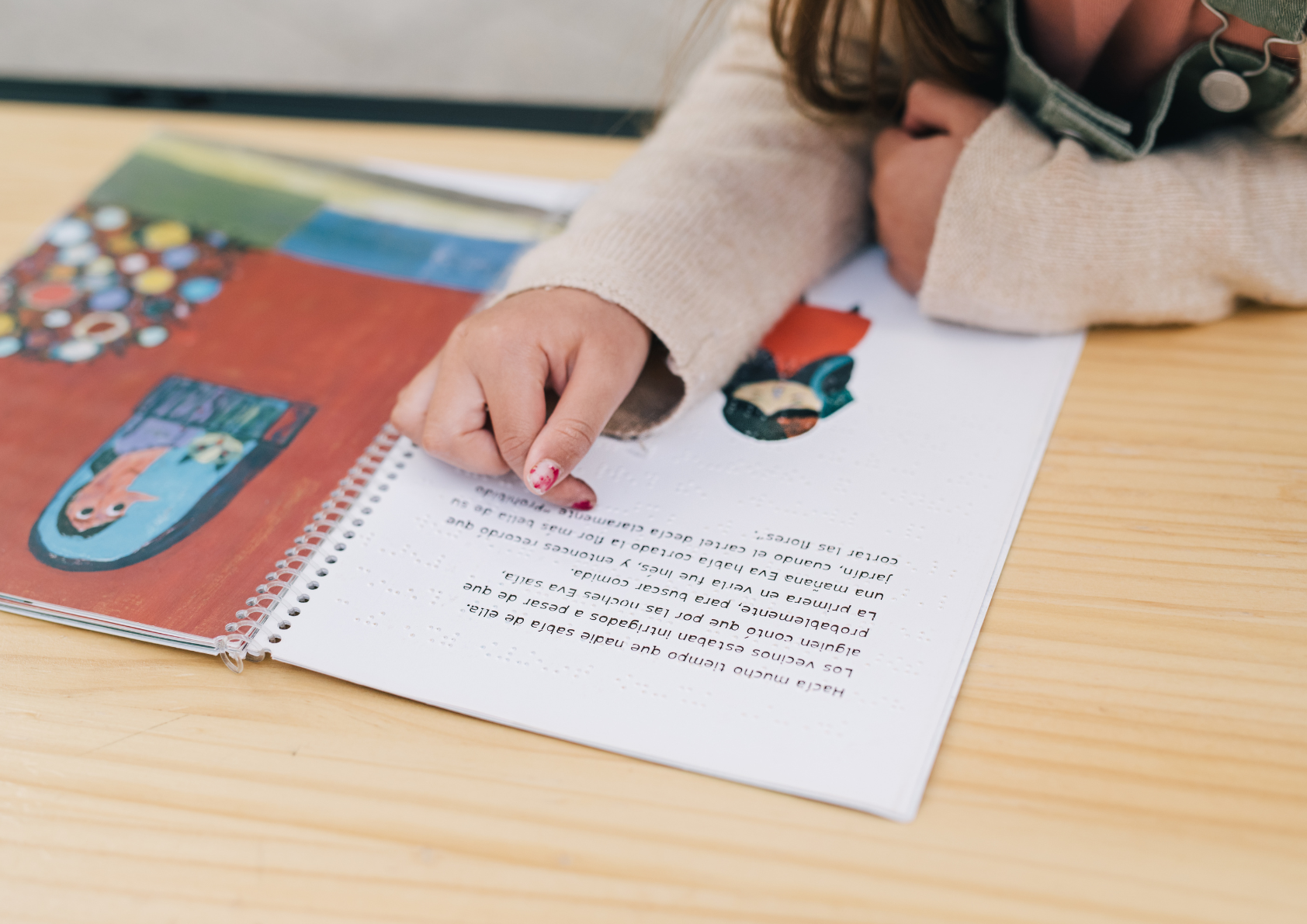- December 30, 2024
- 592
- Hot Tips , Skoop Nuggets
- 0 comment
Here’s what the experts want you to know.
You might notice your child zoning out during homework, forgetting what they just read, or getting unusually frustrated over simple tasks. It’s easy to assume it’s just a lack of focus or motivation, but sometimes, these signs can point to something deeper.
To help parents feel less unsure and more empowered, we spoke to the experts at Annabelle Kids, a multidisciplinary early intervention centre in Singapore. Their team of experienced psychologists, speech and occupational therapists work closely with children across a range of developmental, emotional, and learning needs.
In this article, we break down what to observe, how to tell if your child’s struggles are a passing phase or signs of a learning difficulty, and when to consider professional support —so you can take the right steps at the right time.

Part 1: Spotting the signs
Q1. Many parents worry when their child seems to be falling behind in school. From your experience, what are some of the most common learning challenges you hear about?
Many parents come to us because their kids are having trouble with focus, reading, writing, or speech.
Some kids just find it really hard to stay still and focus in class. When a child struggles with attention, even sitting through a short lesson can feel like a big challenge. They feel the need to move around often which makes it difficult for them to keep up with lessons or even complete a task.
There are also kids that have trouble processing and differentiating between sounds in words. This can affect how well they read and spell. Others may write slower than their classmates or have weaker fine motor skills.
These difficulties aren’t always tied to a diagnosis, but in some cases, they could point to learning differences such as dyslexia or ADHD. These conditions can affect how a child’s brain processes information, so even though they’re trying hard, they may still find certain tasks more challenging than others.
Q2. Some signs of learning struggles aren’t obvious. What are some red flags that parents might easily miss?
While learning difficulties often show up in schoolwork, they can also affect your child’s emotions and behaviour in ways that are easy to miss.
1. Emotional and behavioural signs
Children who have trouble communicating their struggles may express them physically, such as having frequent headaches before school. Others may show signs of increased anxiety, low self-confidence or avoidance especially for certain tasks that they find difficult. These emotional responses may sometimes be mistaken for personality traits or poor behaviour.
2. Compensatory behaviours that mask their struggles
Some children find ways to cope without letting anyone know they’re struggling. They may rely on memorisation without understanding, avoid reading or writing tasks, or try to divert attention subtly. These coping mechanisms can make it harder for parents to spot signs of learning difficulties though you might likely see that your child’s performance is inconsistent and changes from day to day or in different settings.
3. Task-related behaviours
Even when a child manages to complete tasks, they might take much longer than expected, struggle to follow multi-step instructions, or experience emotional distress like frustration or meltdowns during the process. In other cases, when children with learning difficulties put in effort but see little progress, they may also experience greater frustration and eventual avoidance of those tasks altogether.
All of these may be quiet indicators of an underlying learning difficulty, and recognising these signs early can make a difference in how your child is supported.
PART 2: Understanding what might be underneath
Q3. How can parents tell if their child’s struggles with focus, reading, or writing are signs of a learning difficulty like ADHD or dyslexia — rather than just part of normal development or a passing phase?
One helpful way to tell the difference is by looking at what’s typical for your child’s age. Some struggles are perfectly normal at certain stages of development, like mispronouncing words. But if these challenges continue for longer than expected, or if they start to affect other areas like reading, writing, or spelling, it might be a sign of something more.
If the same issues keep popping up, and there’s little improvement even with support, that could be more than just a phase. It’s not always easy to spot, but understanding age-appropriate developmental milestones can help you figure out when to seek extra support.
It’s also important to look for out for persistent patterns, rather than momentary challenges. Be intentional about observing your child and understanding what might be behind their behaviour.
For instance, if your child refuses to go to school, is it just a case of being defiant or could they be feeling anxious about a test? Looking deeper helps you identify consistent challenges, including when and where they often arise.

PART 3: Taking the Next Step
Q4: If parents suspect their child might be struggling, what can they do at home before deciding on an assessment?
If you’re unsure, start by observing your child in different settings — at home, while studying, or with others. Notice how they follow instructions, manage tasks, and react to challenges. Tracking these patterns over time can reveal whether it’s a passing phase or a deeper issue.
Every child learns differently, it helps to try small adjustments to their environment or routine to see how your child responds. Some kids focus better in a quiet, distraction-free space, while others respond well to hands-on or interactive activities. However, if the struggles continue even with support, it might be a sign that professional help is needed.
You can also get feedback from others who spend time with your child, like teachers, tutors, or caregivers. They can offer helpful insights into how your child copes in different environments, allowing you to ascertain whether the challenges are happening across multiple settings or are limited to specific tasks.
Q5: What kind of support or assessments should they consider and when is the right time to take action?
It’s a good idea to seek help when your child’s learning struggles don’t seem to be going away and start affecting their daily life. Consulting a psychologist for a comprehensive assessment can help identify the specific areas your child is struggling with and whether a learning disorder may be present.
Depending on the results, the psychologist may recommend specific types of support tailored to your child’s needs, such as:
• Speech and language therapy – to support the development of language skills, phonological awareness, and reading and writing abilities
• Occupational therapy – to help with fine motor skills like handwriting, sensory processing, and attention to task
• Psychotherapy – to provide emotional and behavioural support to help children cope with the challenges that may accompany learning struggles.

Q6: How can early intervention help children with learning challenges thrive in school and beyond?
Taking early action is one of the most important steps you can take to support your child’s development. Research has shown that providing support, especially before the age of 8, increases the likelihood of its effectiveness.
This is because a child’s brain is most adaptable during the early developmental years, making it more receptive to learning.
Early intervention also empowers parents by equipping them with appropriate tools to guide their child and create a supportive home environment. Creating consistency and reinforcing what their child is learning through the additional support can also make a significant difference in their growth and resilience.
In summary:
No parent wants to see their child struggle. Supporting your child starts with small steps and seeking help when needed. These actions can help reveal meaningful insights early on.
And if professional support is needed, remember that seeking help is not a sign that something is wrong. It’s a step towards giving your child the best tools to thrive. With early intervention and the right support, many children go on to gain confidence, build resilience, and reach their full potential.
Annabelle Kids provides psychology, speech, occupational, and art therapy, as well as psychological and IQ assessments for children and adolescents of all ages. Their purpose-built, multidisciplinary centre is designed for families raising children with neurotypical, neurodiverse, and other needs, including developmental delays, autism, genetic, medical, or health conditions — all through a play-based, child-centred approach.
To learn more about how Annabelle Kids can support your child’s learning and development, visit Annabelle Kids.








Add Comment